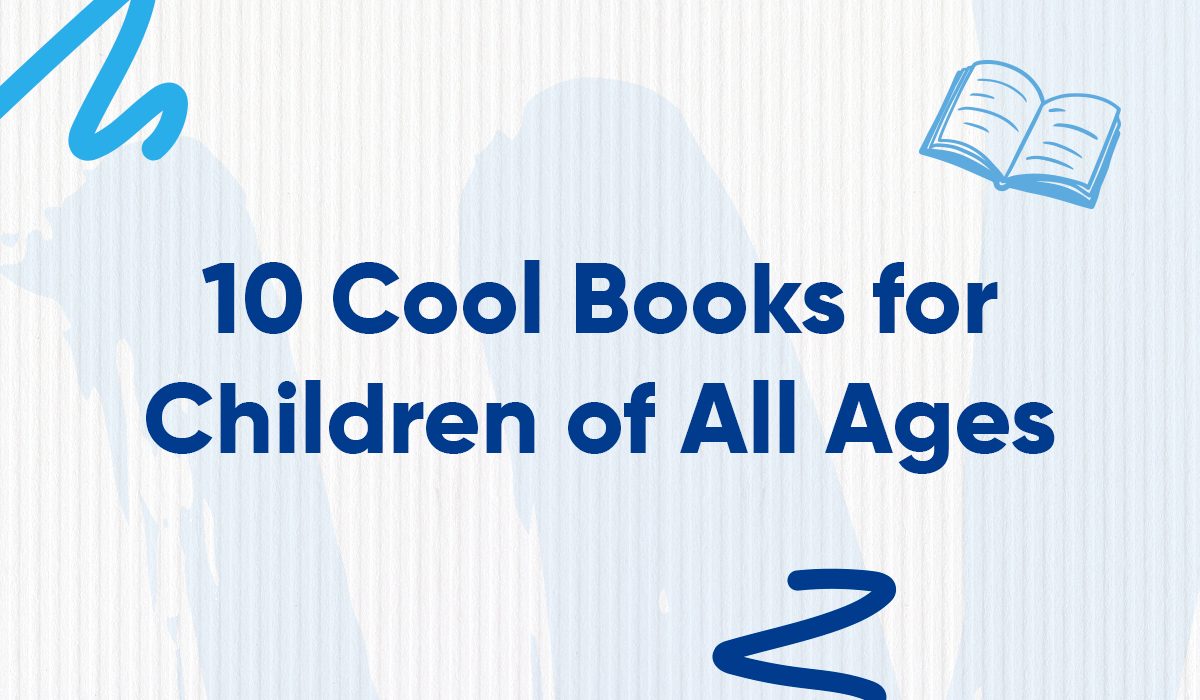
In fact, almost 50% of parents worry about thinking of things to do with children during school holidays, while over 50% are concerned about the cost. Studies show that parents can pay as much as £1,000 a week on their children during the summer holidays. But one thing is for sure, kids need plenty going on to keep them occupied!
Our children can be balls of energy during the holidays, bouncing around the house if they aren’t stimulated in some way. At The Works, we’re here to help with plenty of cost-efficient ways to keep your children stimulated both mentally and physically, expending that energy and keeping them occupied.
So, here’s our ultimate summer holidays planner, with a range of outdoor and indoor activities (because, let’s face it, there will be plenty of rainy days), broken down by their health benefits, cost and everything you need to get your children enjoying them.
Don’t forget to download our School Holiday Activity Planner at the foot of this page to plan in all your activities …
Outdoor Activities: Enjoying that summer sun…
The warm afternoons, the sun beaming down and playing out with friends, siblings and family is what we love to get nostalgic about. Running, splashing, exploring, they even stimulate us both physically and mentally in our older years too.
From football to cricket, gardening to quoits, here are our top outdoor activities for kids during the summer months…
The Best Physically Beneficial Outdoor Activities
Cricket
• Age: 4+
• Estimated cost: £10
• What you need: Cricket bat, ball, stumps
• Health benefits: Develops gross motor skills, increases cardio fitness, develops coordination
The quintessential British summertime always involves a game of cricket. The sound of cork on willow is synonymous with weekend’s across the nation. With the likes of The Hundred tournament on television, directly aimed at families, cricket amongst youngsters is on the rise again and it’s so easy to pick up a bat and ball and start playing with all the family.
You can pick up a cricket set for around £10 and it’s perfect for a group of friends, family or just one on one with your child. According to a report by the ECB, across schools, cricket improved teamwork by around 80%, as well as 80% of pupils also feeling their confidence boosted in special educational needs and disability schools specifically.
The physical health benefits are also significant, improving overall cardiovascular health, as well as motor skills and coordination – after all, those sixes won’t hit themselves!
Kwik cricket is the best option for children, putting the emphasis on participation and enjoyment. This means a child will get to bat for a set period, no matter how many times they are out, while everyone has to bat and bowl a certain amount each. Everyone really does get a turn.
Cycling
• Age: 3+
• Estimated cost: £100
• What you need: Bicycle, stabilisers, helmet
• Health benefits: Cardiovascular health, balance, stress relief
Children love to ride a bike and the process of teaching a child to get in the saddle and pedal for the first time is a truly lasting memory. What’s more, if you’re looking to have a family day out as well as tire the little ones out come the evening, it’s the perfect activity. The average eight-year-old riding their bike for an hour expends around 520 kJ of energy, compared to less than 200 sitting for the same period of time.
The benefits of cycling are great, and well known. It’s naturally good for physical fitness, improving cardiovascular health, while it’s excellent for helping a child’s balance, and not to mention aiding with stress relief and creating a real sense of adventure, whether it be riding round the park or more off the beaten track.
Naturally, bicycles are a more substantial investment, but utilising the likes of online marketplaces can be a useful way to navigate the cost of buying brand new and providing your child with just as much fun.
Egg and Spoon Race
• Age: 2+
• Estimated cost: £1
• What you need: Spoons, hard-boiled eggs/plastic eggs
• Health benefits: Improves balance and coordination, increases cardiovascular fitness
It’s a school sports day classic, but there’s more to the egg and spoon race than meets the eye. There are a wealth of health benefits, most notably building balance and coordination skills. After all, we all know it isn’t easy keeping that egg on the spoon, as many will testify following a parent’s race.
Whether it be friends, family or parents going head-to-head with each other, it’s a fun, physical activity that will get them up and moving and is perfect for a mini-Olympics out in the garden, combined with the likes of sack races, quoits and many other activities featured in this article. What better way to cheer on Team GB than with your own back garden Games?
Football
• Age: 3+
• Estimated cost: £3
• What you need: Football
• Health benefits: Improves cardiovascular fitness, teaches teamwork and sportsmanship, engages motor skills
The beautiful game is widely loved across the country. Over 3.35 million children enjoy playing the game, with that rising, particularly among young girls following the success of England’s Lionesses.
It can provide a real escape for kids as they look to emulate Harry Kane or Ella Toone, boosting cardiovascular health with the running, jumping and stop and start nature of the game. All you need is a football, and from there you can create a range of challenges and games for your child, whether it be alone, shooting at targets or dribbling, or playing games with friends.
It costs very little to pick up a football and playing such games for an hour can expend as much as 600 kJ of energy in a match over 30 mins. The concentration required for various drills can also help burn off the energy they need to across the holidays.
Six Lines of Tape
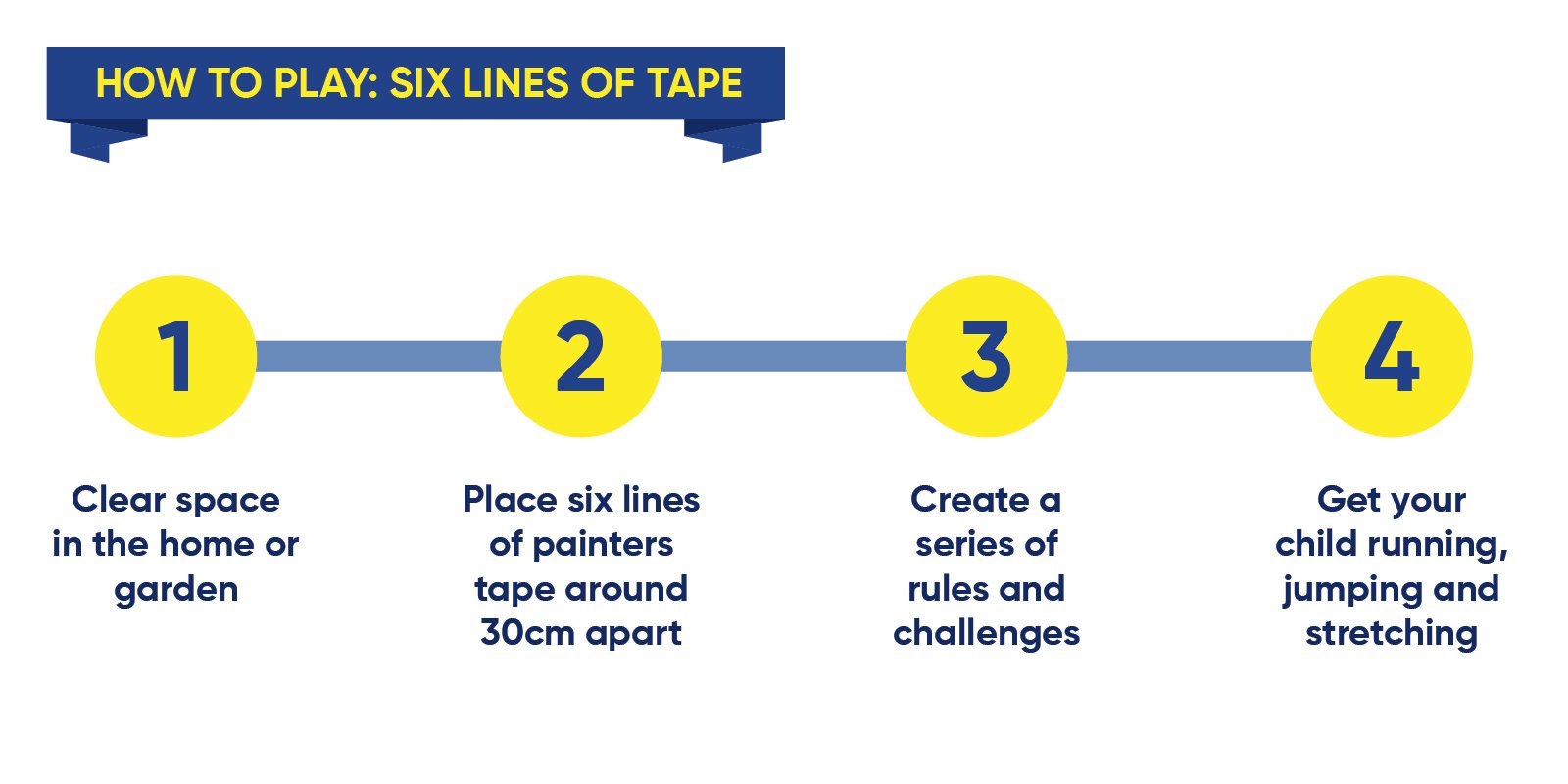
• Age: 3+
• Estimated cost: £2
• What you need: Tape
• Health benefits: Improves body control and gross motor skills, aids coordination, increases flexibility
A simple yet challenging and rewarding activity for children, six lines of tape can be as inventive as you like, from hopscotch, a staple of the playground, to squares to run to tape lines to create long jump and hopping tasks. The possibilities are endless. And all from a roll of tape!
Take hopscotch, for example. It’s a traditional British game, having first appeared in the written language over 300 years ago, and it’s been keeping kids occupied ever since. And, while it might pose its challenges in getting from one side to the other, that’s because it takes strength, flexibility and balance, crucial for a child’s growth and development.
Body control and dexterity, gross motor skills, coordination, leg flexibility as well as counting skills.
The Best Outdoor Activities For Cognitive Development
Gardening
• Age: 2+
• Estimated cost: £0 - £5
• What you need: Tools, plants etc.
• Health benefits: Improves cardiovascular health, teaches self-regulation, encourages individuality and provides calm
Karen Stocks, a trainer at Place2Be works with the RHS and explained the benefits of getting into gardening as a child, saying, “Being in nature gives children the space that they don’t get from a more stimulated environment for their feelings to come to the surface. This doesn’t necessarily mean that they’ll feel better, it’s just that there’s space to feel.”
As adults, we all know the benefits of being at one with nature, and the same applies to children. It’s an opportunity to escape, to explore and can be incredibly enriching for a child’s life and learning.
Encourage your child to help you in the garden, giving them simple tasks from potting and digging to getting a little craftier, such as making bug and bee hotels, or decorating parts of the garden.
There are lots of options that can really evoke calm and keep the kids from bouncing off the walls during the holidays, while a few hours gardening is also excellent for a little bit of physical exercise too. They’ll certainly be ready for an afternoon nap!
Exploring Nature
• Age: 1+
• Estimated cost: £0 - £5
• What you need: Nothing
• Health benefits: Increases mindfulness, learn about the outdoors, expend restless energy
Alongside gardening, getting out and introducing children to nature and the great outdoors in general can be hugely beneficial. We’re all aware fresh air is good for us and there are so many activities that can lift a child’s mood. Psychologist Dr Claire Halsey worked with the BBC, suggesting that a change of environment each day is vital for children.
She said, “Even a few minutes outside, especially if it's a green environment like a back yard, park or visit to the local sports pitch is known to improve mood and lift children's spirits,” adding, “Children love sharing discoveries, pointing things out, explaining things and having things explained.”
Among the things to do surrounded by nature include:
• Listening walks
• Photography
• Drawing and tracing
• I Spy
• Collecting challenges
The Works have a great range of Get Set Grow products, from Spot the Bug activities to mini-fishing nets and colouring sets that can really help them appreciate and love their surroundings.
Kid’s Yoga
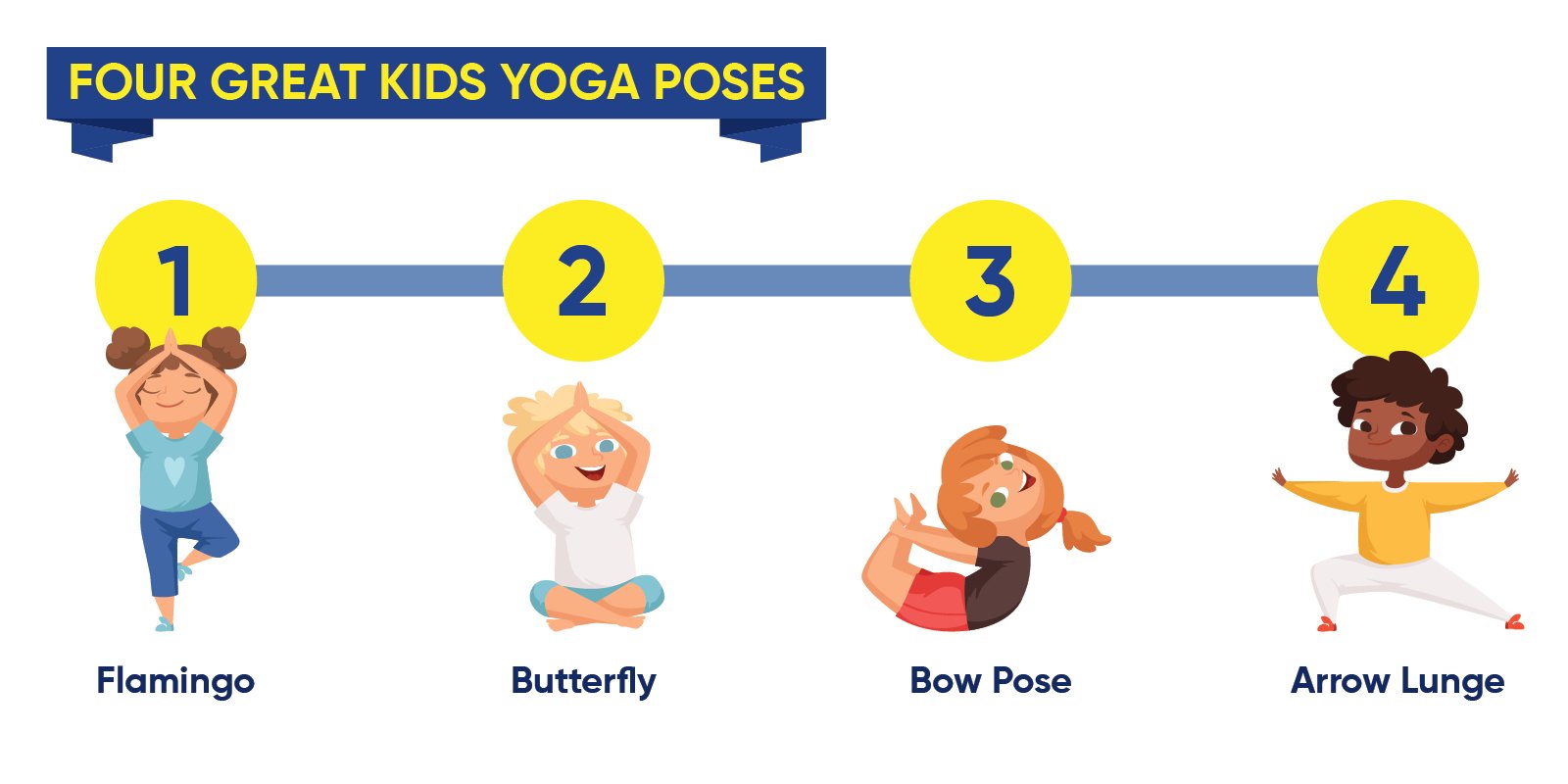
• Age: 4+
• Estimated cost: £0
• What you need: Nothing, potentially a yoga mat
• Health benefits: Improves flexibility and strength, increases mindfulness, aids in emotional regulation and anxiety management
The benefits of yoga are widely known, but it barely leaves our adult circles. Simple yoga exercises can also be incredibly beneficial to children too. It provides all the same perks as what it does for us, helping children manage anxiety from an early age, regulate emotions and boosting self-esteem.
Alongside the above, it can also boost concentration and memory, strength and flexibility, as well as being incredibly calming – perfect for when you want a bit of peace and quiet!
You don’t need anything, although it may be worth investing in a yoga mat, and there are some great tutorials on YouTube. Think Joe Wicks but for yoga.
Flying a Kite
• Age: 4+
• Estimated cost: £10
• What you need: A kite
• Health benefits: Improve problem-solving skills, reduce stress, and provide a sense of accomplishment.
There’s something truly meditative about watching a kite gently fly in the breeze, and the excitement children can get from seeing theirs go up and stay in the skies is great for boosting confidence and providing a sense of achievement.
On a nice, breezy day, why not head to the beach, to the local park or into the countryside to see their kite take flight? You can pick up kites for around £10 and hours of fun can be had. Kite flying is a real sensory experience that can be ideal for families to bond together, while the challenge of getting your kite to stay in the air is exceptionally useful for working your child’s problem-solving skills.
Hide & Seek
• Age: 2+
• Estimated cost: £0
• What you need: Nothing
• Health benefits: Improves memory, imagination, stamina and cardiovascular health
Hide and seek is one of the most common games we play as children, from being a toddler into our teenage years. It’s a difficult game not to love and it can improve our health in many ways.
Of course, there’s the physical aspect of running and seeking, but from a mental perspective, it can really spark a child’s imagination and problem-solving skills as they look to find the most effective space not to get caught. This can improve memory too as children try to remember good hiding spots, as well as where people have hidden before if they are the seeker.
A game of hide and seek encourages thinking under pressure and can be great for expending energy, and spending hours of fun out in the garden, local park or even indoors if the summer sun has taken a break.
Indoor Activities: The Best Options for Dull & Rainy Days
The British summertime doesn’t always play ball, while across half term and Christmas holidays getting out into the garden isn’t always possible. But do not fear, there are just as many great activities to wear out little ones and keep them occupied hour upon hour…
The Best Physically Beneficial Indoor Activities
Obstacle course
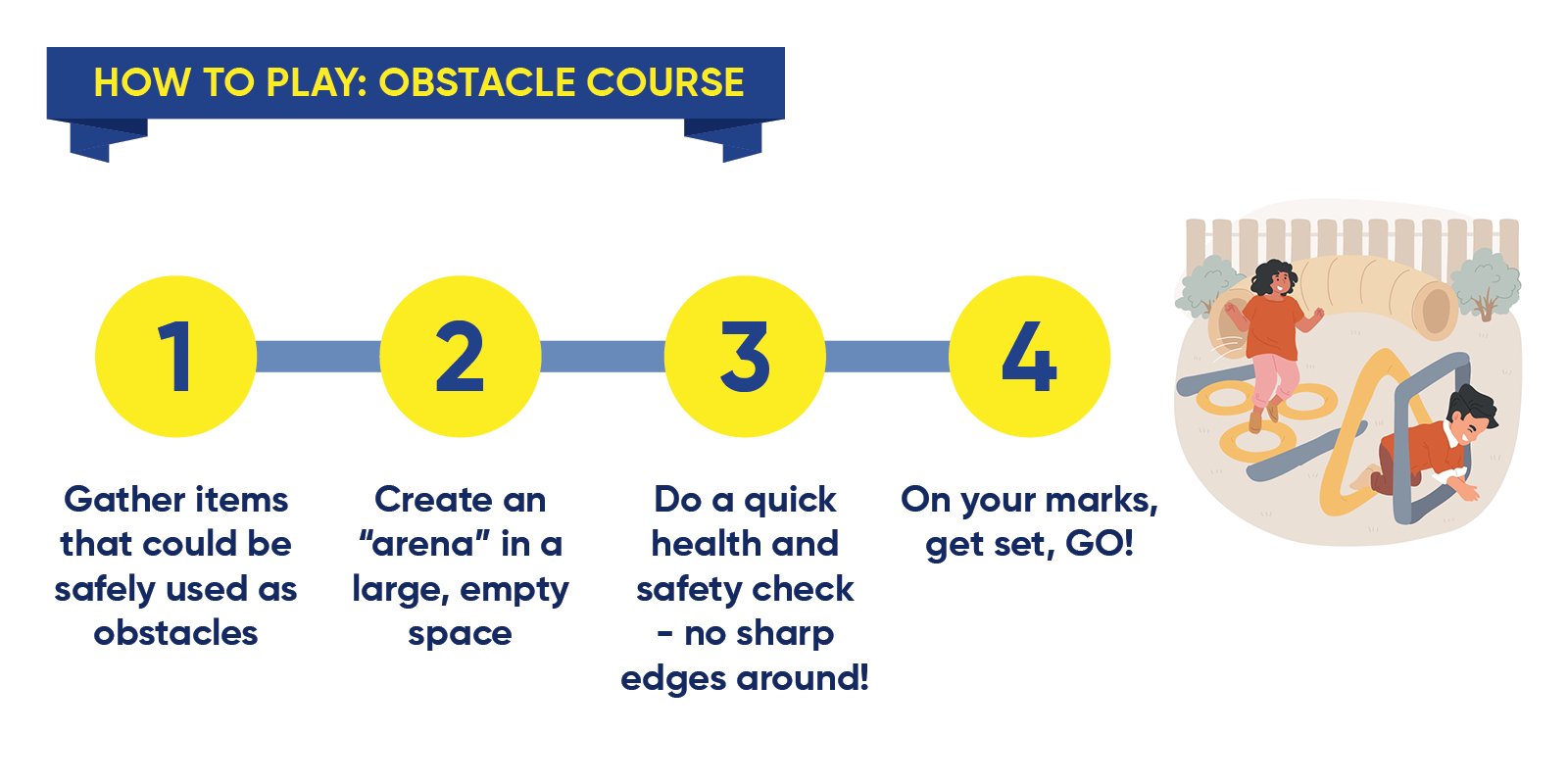
• Age: 2+
• Estimated cost: £0
• What you need: Various items
• Health benefits: Enhances Muscle strength and body awareness, develops balance and coordination, aids problem solving skills.
Obstacle courses can provide heaps of fun and are something you can even get involved in with yourself as parents. Just make sure you don’t get stuck in a tunnel or try and squeeze through something that’s easy for a four-year-old, but less so a 40-year-old!
There are many physical and mental health benefits to building an obstacle course, from improving strength and balance to aiding problem solving skills as children look to navigate the course in the speediest and most efficient way.
You don’t need anything specific to create the course, you can be imaginative with what you’ve got. Just clear a space within the home, or indeed outdoors if it’s sunny, and set about placing some obstacles, ensuring there are no hazards that could cause injury. Once set up, put your children through their paces. Voila!
Scavenger Hunt
• Age: 2+
• Estimated cost: £0
• What you need: Nothing
• Health benefits: Good for sensory regulation, boosting concentration and focus and solving problems.
On rainy days, setting up a scavenger hunt around the house can be a good option for keeping your children occupied for a few hours and really testing their concentration, focus and problem-solving skills.
It’s a completely free, or minimal cost, activity depending on what you want to use as the items your children must hunt for and is good for larger groups of children to either work together or compete against each other.
There are also plenty of opportunities for them to learn along the way, particularly from the clues you give them.
Climbing Frames
• Age: 2+
• Estimated cost: £10-70+ (if purchasing your own)
• What you need: Indoor play centre/climbing frame
• Health benefits: Improved dexterity, develop physical strength, encourage problem-solving
Whether heading down to the local indoor play centre or installing a climbing frame in your home (or garden for the nice days!), hours can be spent trying to get from one level to the next, challenging strength and problem-solving skills to reach the top.
Costing around £10 for an adult and child at an indoor centre, but a slightly more expensive hobby if you’re looking to install a frame in the home or garden, costing upwards of £70, but over time that will pay itself back in the fun it delivers and the petrol, parking and snacks the indoor centre may require.
Dancing
• Age: 1+
• Estimated cost: £0
• What you need: Music
• Health benefits: Develop flexibility, strength, coordination, posture, stamina and agility.
Kids really do feel free when they dance and there are so many ways to be creative with it, from playing games like musical statues to following dance courses and tutorials on YouTube. For years and years, dance classes have been popular in getting children active, and it’s something that can be enjoyed on a rainy day from home to really boost mood, too.
The physical benefits are tremendous, from building muscles to developing coordination and flexibility. So, what’re you waiting for? Get the tunes pumping and have a good, old-fashioned dance-off. They’ll be needing a nap in no time afterwards!
Swimming
• Age: 1+
• Estimated cost: £5
• What you need: A local pool, armbands, swimsuits
• Health benefits: Develops muscles and relieves stress.
Swimming is one of the best exercises around for children as not only is it a full body workout, it doesn’t impact the body as much as the likes of running and jumping and so forth. The resistance of the water also means that they will use more energy than out of water too.
Splashing and playing is also so much fun, while many local leisure centres have floats and slides for children to play on too. A great way to spend a few hours, it’s an activity that is not only fun, but helping learn a key life skill too.
The Indoor Activities For Cognitive Development
The Concentration Game
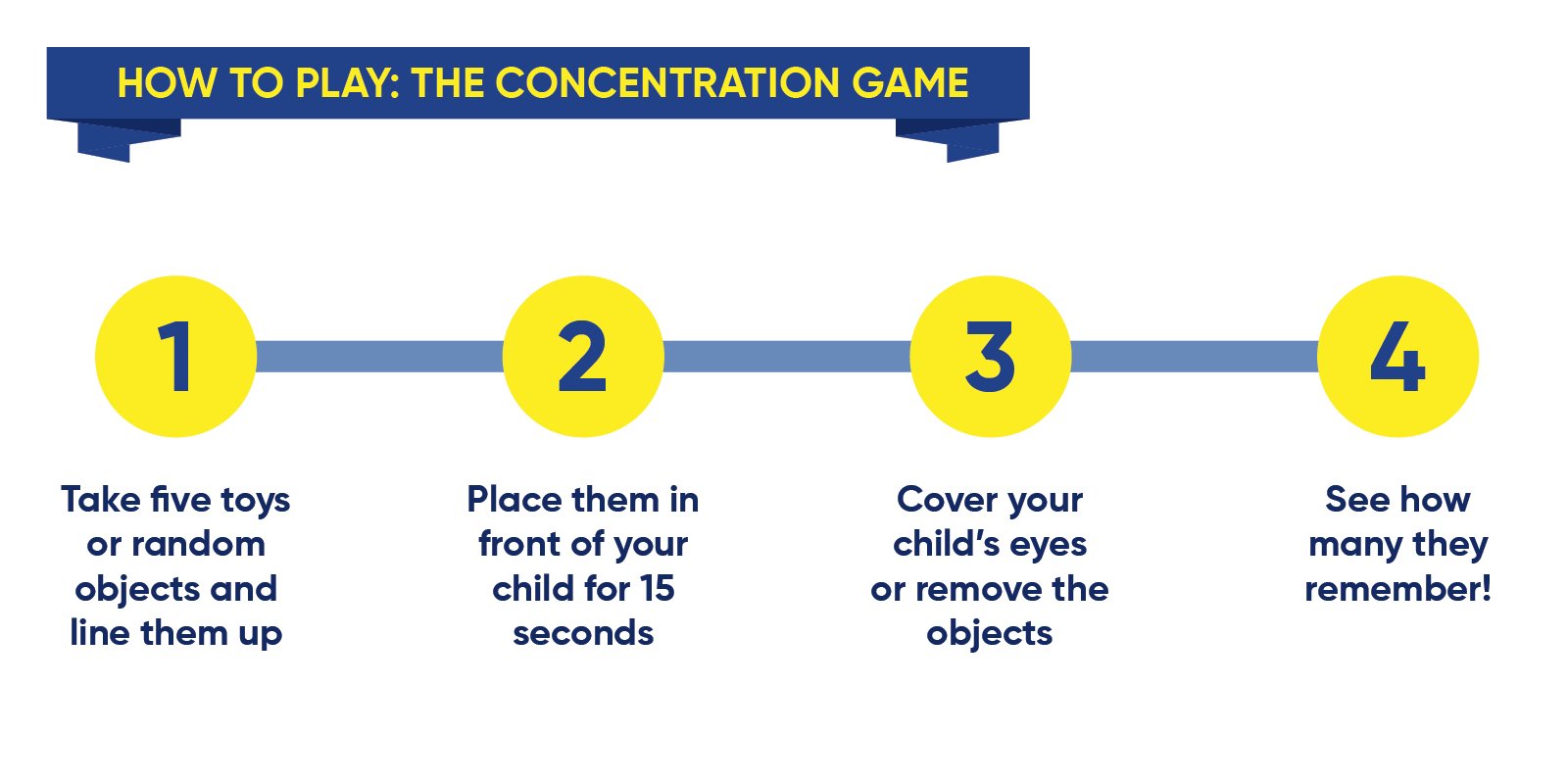
• Age: 2+
• Estimated cost: £0
• What you need: Various items
• Health benefits: Improves concentration, memory and focus.
A simple, yet effective game to play with your children is the concentration game. Playing for half an hour a day can not only be good for passing time before bedtime, but also over time is brilliant for improving concentration.
The game is simple, take five toys or random objects and line them up. Place them in front of your child for approximately 15 seconds before covering their eyes or removing them from sight. Then it’s a case of seeing how many they can remember.
Over time you can build up the number of objects and really help progress their concentration and memory in what is a fun yet developmental activity.
Learn An Instrument
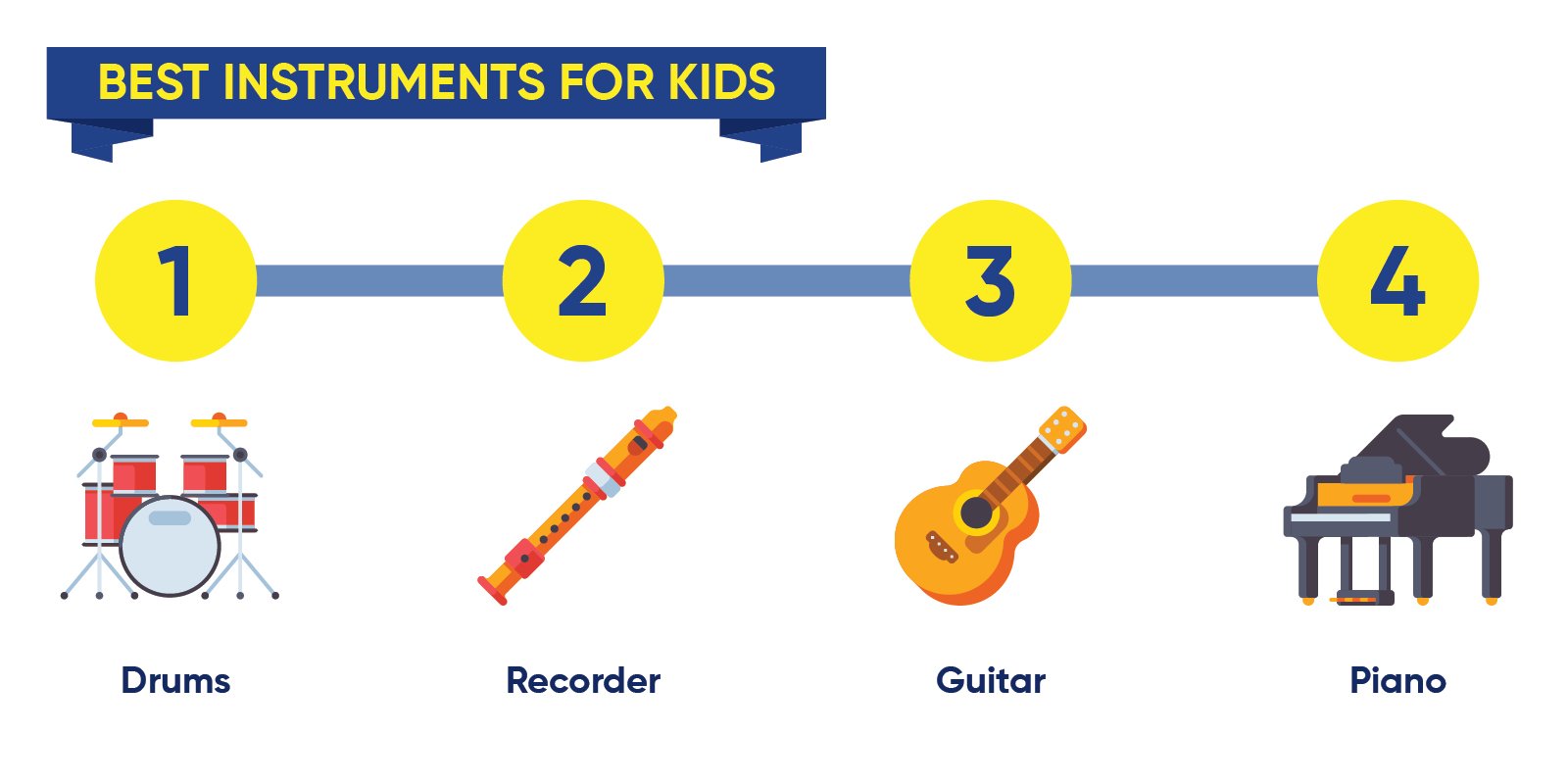
• Age: 3+
• Estimated cost: £10
• What you need: An instrument of choice
• Health benefits: Develops memory, timing, coordination, patience and concentration
Learning an instrument is one of the more beneficial hobbies to take up as a child. In terms of development, it can aid a number of things from memory to coordination, discipline to patience, timing and perseverance.
Of course, musical instruments can range in price from the various toys and games ideal for those aged between one and four, to actually taking the likes of the drums, recorder, violin or piano a little more seriously.
Learn A Language
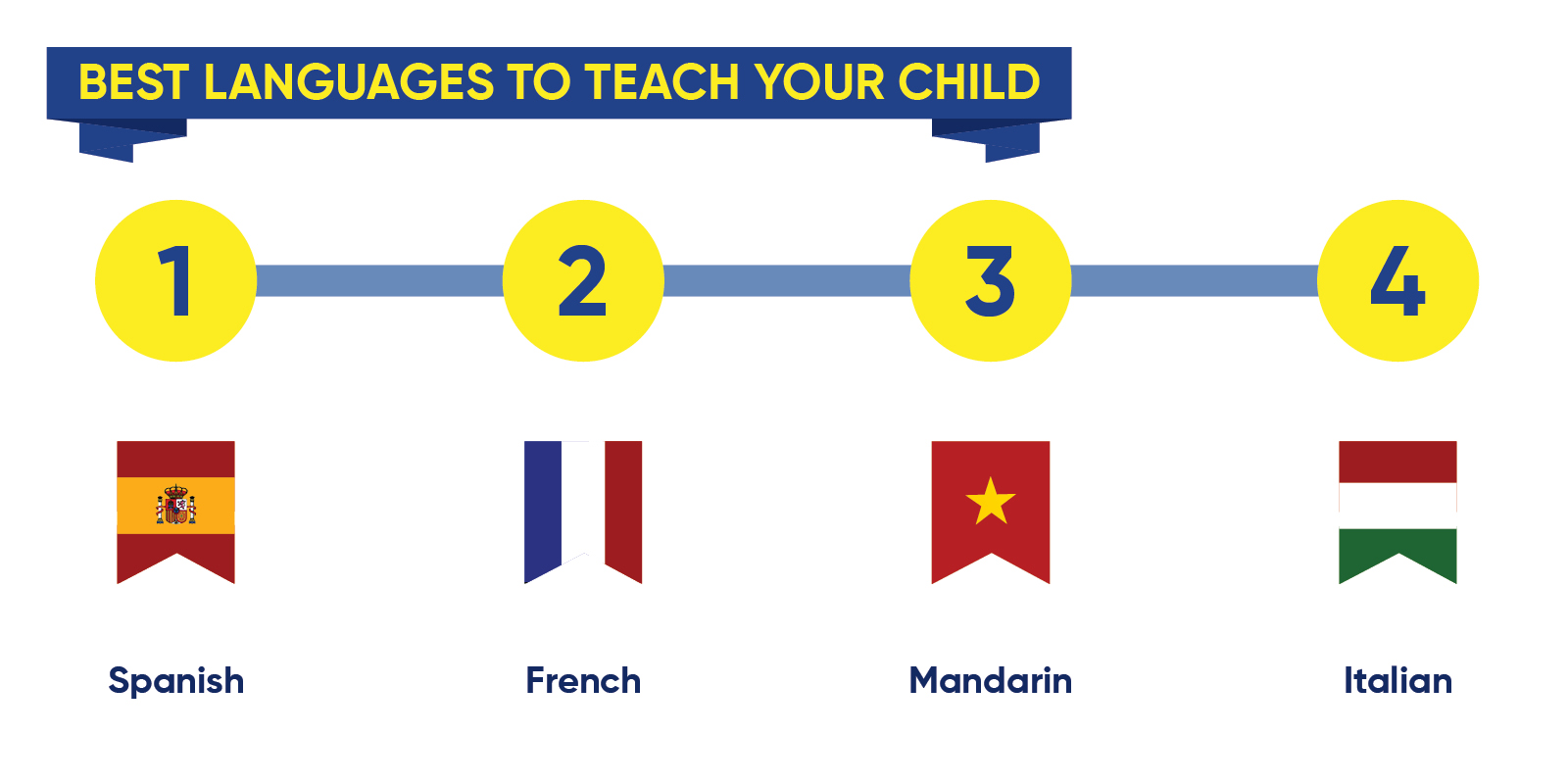
• Age: 3+
• Estimated cost: £0-10
• What you need: Language books, apps etc.
• Health benefits: Develops memory, connects to other cultures, creates further bonds with people, enhances empathy
Learning about other cultures can be a great way to instil empathy, tolerance and equality within a child and while learning a new language can be difficult, it can also be lots of fun too. There are apps out there such as Duolingo that can be useful, as well as activity books and language books that are ideal for working through together as parent and child.
Languages such as Spanish and French are taught in schools, so it can be a useful head start for our little ones, while even learning a little of a language before going on holiday can be exciting and provide a real sense of achievement for children when they touch down and are able to say hello in the native tongue.
Reading Time
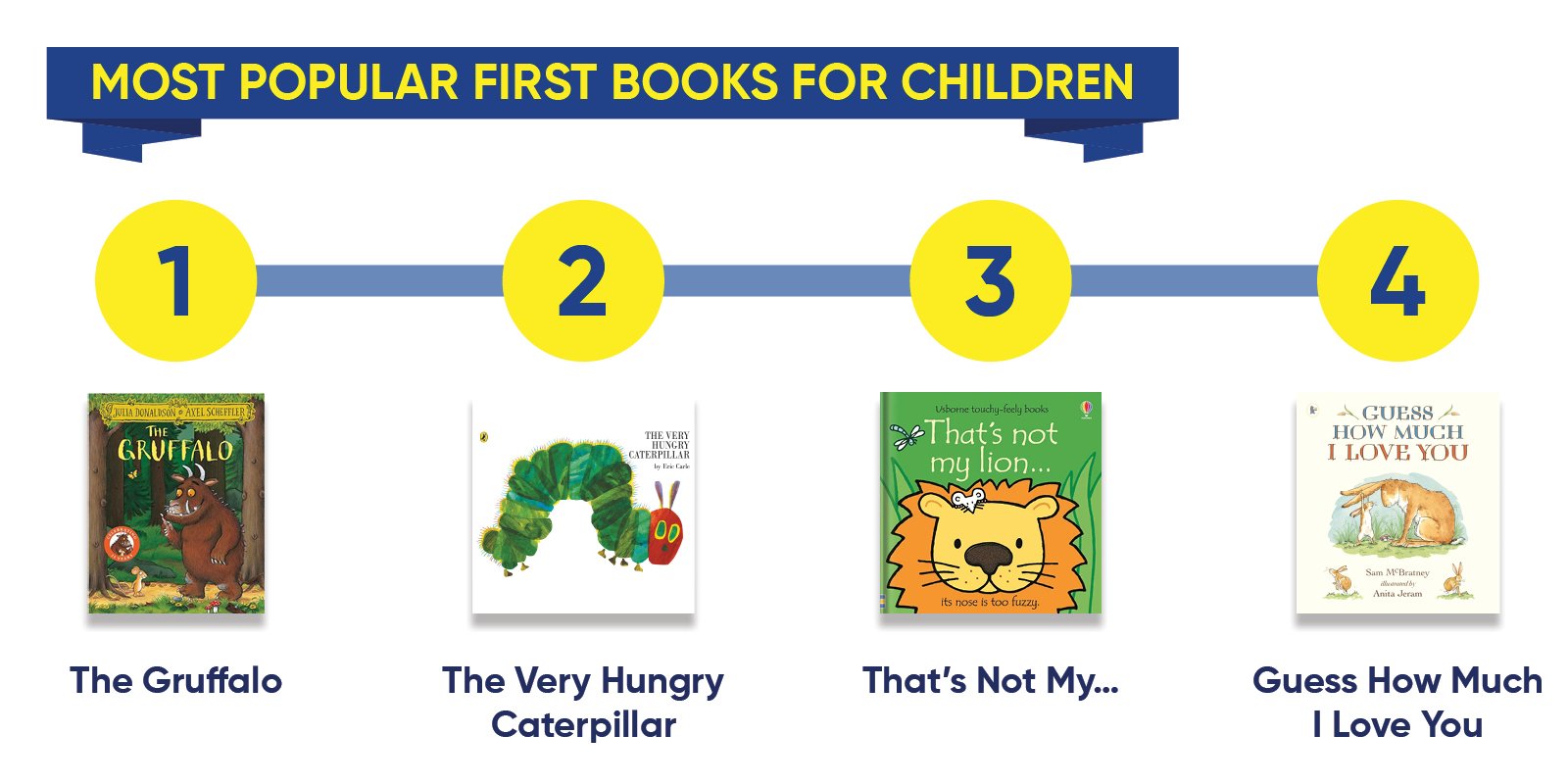
• Age: 3+
• Estimated cost: £1 - £10
• What you need: Reading books
• Health benefits: Improves concentration, reading skills, imagination and creativity
At The Works we understand the importance both of reading aloud to our children and of encouraging independent reading as their literacy skills develop. It’s the perfect activity for the holidays, allowing them to use their imagination and get lost in a good book.
A study by us found that classics such as The Gruffalo, The Very Hungry Caterpillar and The Tiger Who Came to Tea, as well as more advanced books such as Harry Potter were still hugely popular with children today, despite the stories being over 50-years-old in some cases!
Danielle Bhaskar, Books Buying Manager at The Works said, “Studies have shown that children who read from a young age are healthier, happier and have much better mental wellbeing and levels of self-esteem.
“Advancing reading skills can be a real confidence booster, while also allowing them to escape, be imaginative and really immerse themselves in new and exciting worlds, full of life and interesting characters.”
Among the most popular first books for children are The Gruffalo and The Very Hungry Caterpillar, according to research by us at The Works, with a staggering one in eight children being read it as a first book.
Painting
• Age: 1+
• Estimated cost: £5
• What you need: Paints, paper/surfaces
• Health benefits: Reduces stress and anxiety, increase happiness, expands creativity
Arts and crafts are the ultimate go-to for those wet weekends, allowing a child’s imagination to run wild as the rain splatters against the windows. When it comes to painting, there are all manner of activities to enjoy, from self-portraits to things more abstract, hand painting to painting by numbers.
Across any form of painting activity, it’s really valuable for allowing a child to express themselves and there are so many options and activities for children within the Kids Painting section of our website, from papier mache lion masks to colour your own bag kits, colouring and painting bundles and so much more.
Download Your School Holiday Planner Today
With the summer holidays upon us, it’s time to start thinking about how to keep your children occupied and enjoying themselves over the coming weeks. With so many options to choose from, it’s best to start picking up your summer activity sheets and scheduling in the activities to give the little ones something to look forward to.
Download our School Holiday Planner by clicking the link below. It’s perfect for the fridge or your child’s bedroom and will make sure they’re never board, even when we get those wet and miserable summer days!



